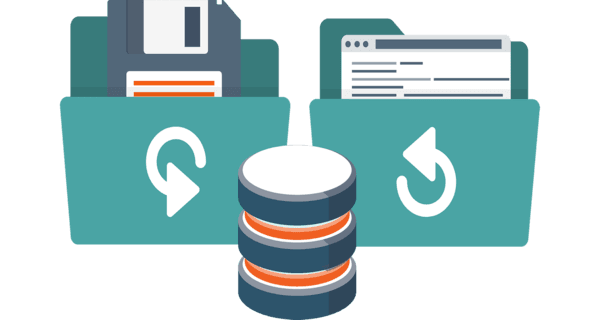Offsite Enterprise offsite Backup For Small Businesses
Offsite Enterprise offsite Backup For Small Businesses
Blog Article
Simplified Backup Multiple Computers Online In 2024
Organizations must overcome the crucial challenge of protecting their priceless information as digital data storage becomes more and more important. By offering safe and easily accessible storage for important data, cloud database backup offers a remedy. We will discuss the advantages and significance of cloud database backup in this article, as well as the best methods for putting it into practice and effectively managing it.
- Recognizing Cloud Database Backup
The process of keeping copies of your database in a remote server or data center that is online is referred to as cloud database backup. It offers an off-site backup option that guarantees data redundancy, hardware fail-safeness, natural disaster defenses, and cyber threats.
- Advantages of cloud database backup
High-performance Saas Backup Vs On-Premises Backup Expert Opinions
Compared to conventional backup techniques, cloud database backup offers a number of benefits. These consist of:
Data redundancy: By storing data across multiple servers, hardware failures and disasters are less likely to cause data loss.
Scalability: Depending on your needs, cloud backup makes it simple to scale up or down your storage needs.
Accessibility: With cloud backup, any device with an internet connection can access your data whenever, wherever you want.
Cost-effectiveness: Cloud backup makes it unnecessary to spend money on expensive backup personnel, infrastructure, and maintenance.
Automated Backups: By automating scheduling and incremental backups, cloud backup services frequently eliminate the need for manual backup.
- Picking the best Cloud Database Backup Service:

Take into account the following when choosing a cloud database backup provider:
Modern Backup Solution For Mac Time Machine In 2024
- Security Measures: Make sure the provider uses reliable security measures like compliance certifications, access controls, and encryption.
- Reliability: Look for businesses that have a solid reputation for dependability and high uptime assurances.
- Scalability: Verify that the service provider provides flexible storage options to meet your expanding data requirements.
- Data transfer speed: Take into account the provider's bandwidth and network infrastructure for quick and effective data transfers.

- Using cloud database backup to implement:
Follow these best practices to implement cloud database backup successfully: Backup Solution For Pcloud.
- Define Backup Policies: Clearly specify your backup needs, including the frequency, retention, and recovery point next goals.
- Encryption: To guarantee the integrity and confidentiality of your data, encrypt it before moving it to the cloud.
- Regular Testing: To ensure that your backups are accurate and complete, regularly test the restoration process.
Implement monitoring and alerting systems to quickly identify problems or failures in the backup procedure.
Create a thorough disaster recovery plan that outlines the procedures for recovering data in the event of an emergency.
Automated Backup Solution For Enterprise Laptop Recovery Tactics
- Cloud database backup management:
Continuous monitoring and maintenance are necessary for managing cloud database backup. Take into account the following advice:
- Regularly Monitor Backups: Keep an eye on the backup procedure to make sure it's done correctly and quickly fix any mistakes or failures.
Update Backup Policies: To keep up with evolving business requirements and compliance requirements, periodically review and update your backup policies.
- Retention Management: Depending on business priorities and legal requirements, control how long your backups remain in storage.
Implement data archiving techniques to move infrequently accessed data to cost-effective storage tiers while maintaining accessibility.
Periodic Reviews: Review your cloud database backup strategy on a regular basis to spot areas for improvement and make sure it aligns with company objectives.
Messages to Remember:
Robust Continuous Backup Server Customer Reviews

- Cloud database backup offers advantages like data redundancy, scalability, accessibility, cost efficiency, and automated backups for secure and accessible storage of important data.
- When selecting a provider, take security precautions into account, as well as dependability, speed of explanation data transfers, and reliability.
Creating backup policies, encryption, routine testing, monitoring and alerting, and creating a disaster recovery plan are all components of cloud database backup implementation.
Regularly monitoring backups, updating backup policies, managing retention, implementing data archiving, and conducting periodic reviews are all necessary to effectively manage cloud database backup.
Remember that protecting the sensitive check this data in your organization requires the implementation of a strong cloud database backup strategy. To ensure data security, accessibility, and business continuity, embrace cloud backup's power.
Key Takeaways or a related phrase:
Data redundancy and protection against hardware failures or disasters are both guaranteed by cloud database backup.
Scalability, accessibility, cost-effectiveness, and automated backups are some of the advantages.
When selecting a provider, take security precautions into account, as well as dependability and data transfer speed.
- Adopt best practices like encryption, regular testing, monitoring and alerting, disaster recovery planning, and backup policies.
Monitoring backups, updating policies, managing retention, putting data archiving into place, and conducting periodic reviews are all part of effective management.
Report this page